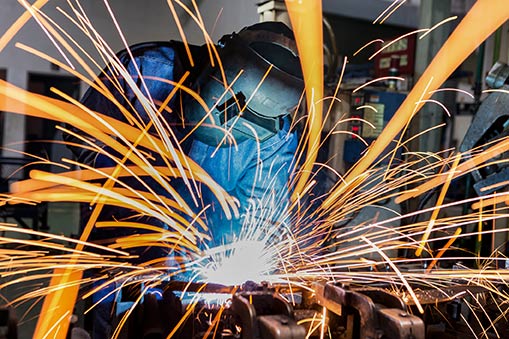

Upon successful completion of this course, participants will be able to:
By the end of this course delegates will learn about:
Welding engineers and technicians, inspection engineers and technicians process engineers, manufacturing engineers, product development engineers and managers, mechanical engineers, quality control engineers and technicians and people involved in welding, fabrication and heat treatment.
Training will be delivered mainly through lectures with emphasis on practical examples and case studies. Practical sessions would be provided when and wherever possible.
Fusion welding processes.
Development of the weld metal (fusion zone)
The Heat Affected Zone (HAZ)
Cracking and fracture in welds
Weldability of carbon steels
Austenitic and high-alloy steels
Non-ferrous alloys
Weld testing
Destructive testing
Case studies
BTS attendance certificate will be issued to all attendees completing minimum of 80% of the total course duration
| Code | Date | Venue | Fees | Register |
|---|---|---|---|---|
| FAC127-02 | 26-04-2026 | Cairo | USD 5450 | |
| FAC127-03 | 10-08-2026 | Istanbul | USD 5950 | |
| FAC127-04 | 01-11-2026 | Dubai | USD 5450 |
.jpg)
Welding Technology plays a major role in all maintenance and fabrication activities in the industry. Production equipment, a highly sophisticated welding technique and qualified personnel allow proces ...
Providing services with a high quality that are satisfying the requirements
Appling the specifications and legalizations to ensure the quality of service.
Best utilization of resources for continually improving the business activities.
BTS keen to selects highly technical instructors based on professional field experience
Since BTS was established, it considered a training partner for world class oil & gas institution
1st floor, Incubator Buildingو Masdar City, Abu Dhabi, UAE
Sun to Fri 09:00 AM to 06:00 PM
Contact Us anytime!
Request Info